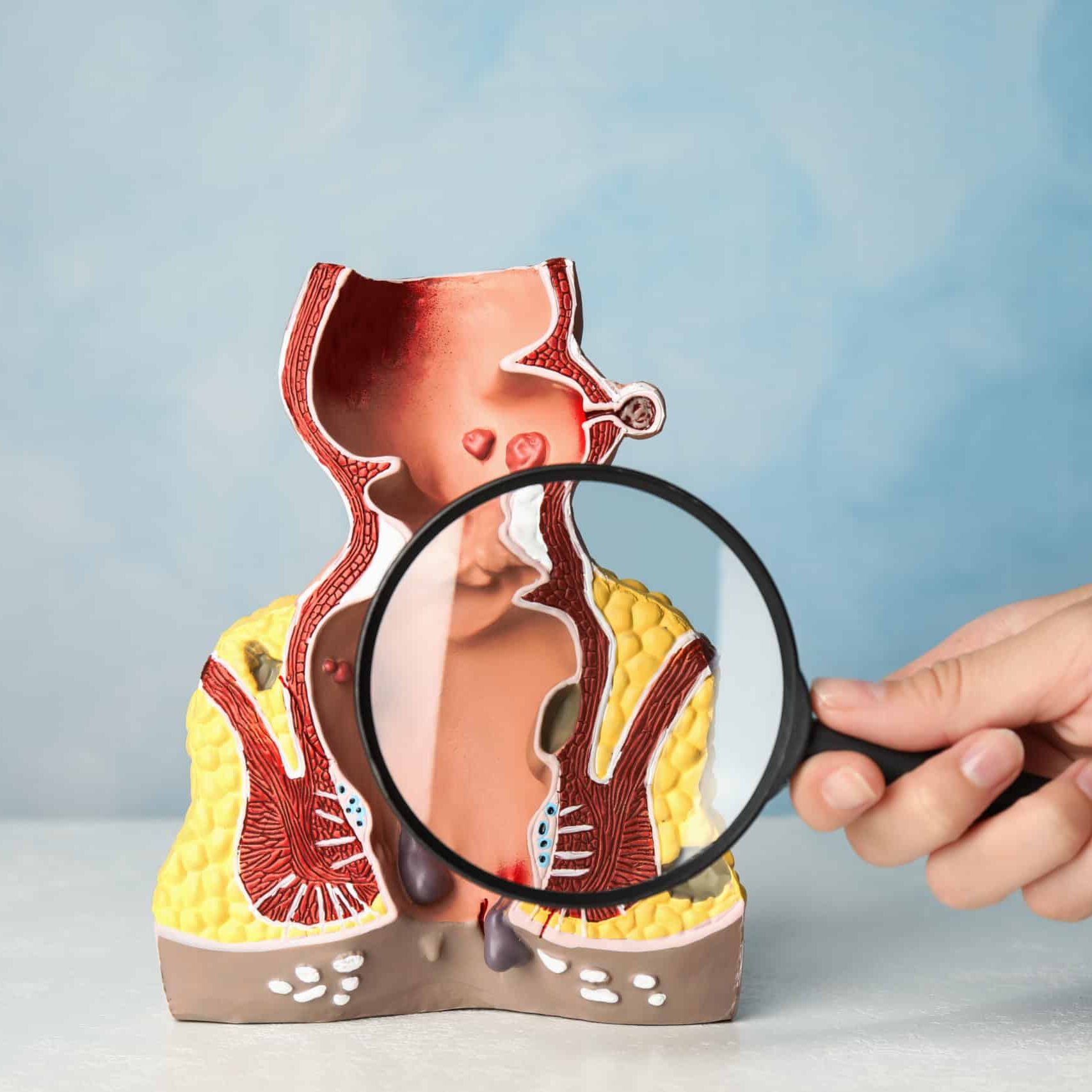
Anal fissures are small tears that occur when the tissue lining the anus is stretched too far. They can occur in people of all ages, and they are often mistaken for hemorrhoids. Anal fissures usually heal with conservative care, but ignoring their warning signs can prolong the healing process and turn a relatively minor acute problem into a chronic condition that may require medical treatment.
What Causes Anal Fissures?
An anal fissure occurs when the tissue lining the anus is stretched beyond its limit. The result is a tiny tear in the tissue– the most common cause of anal fissures is passing large, dry, hard stool, which can happen after bouts of constipation. Childbirth can also cause anal fissures, as can penetration from having anal sex.
The pain from an anal fissure triggers the anal sphincter to spasm and tighten, which can cut off the blood supply necessary to help the tear heal. The cycle of pain, muscle spasms, and a lack of blood flow occurs with every bowel movement, which slows down the healing process considerably. Treating an anal fissure generally involves disrupting this cycle so the tear has a chance to heal, which usually happens within eight weeks.
Signs and Symptoms of Anal Fissures
The most common sign of an anal fissure is a severely painful bowel movement. This pain has been described as sharp, cutting, tearing, or burning and can last anywhere from several minutes to several hours after a bowel movement. Most people with an anal fissure feel this pain, but not everyone does.
Other signs of anal fissures include:
- Blood in your stool that may be visible on toilet paper or in the toilet bowl
- A burning or itching anus
- Minor pain when urinating
Anal fissures are often confused with hemorrhoids since the conditions share many of the same symptoms. The biggest difference between hemorrhoids and anal fissures is that anal fissures tend to be more painful.
About 90 percent of anal fissures cause pain, while many hemorrhoids can be painless. Additionally, pain from hemorrhoids is usually constant, while the pain from anal fissures tends to be episodic.
Where to Treat Anal Fissures
Treatment for anal fissures usually involves softening stools and avoiding constipation. As a result, treatment plans include drinking plenty of water, adding high-fiber foods to your diet, and taking stool softeners. Sitting in a warm sitz bath for 10 to 20 minutes a day can also help relax the sphincter enough to prevent spasms and promote healing. Anal fissures that don’t heal after eight weeks may require more aggressive medical treatment such as surgery to prevent muscle spasms in your anus.
Contact Arizona Colorectal Experts
If you suspect that you have an anal fissure that isn’t healing on its own, contact Arizona Colorectal Experts in Chander, Arizona to schedule a consultation. Dr. Patel and Dr. Hakiman welcome new patients, and we will be happy to answer your questions to help find a treatment that works best for you.


